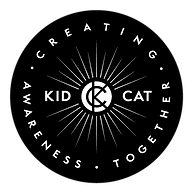
Excitement filled the air on the morning of Sunday, November 12, as self-rehabilitation continued to thrive at San Quentin. The First Step welcomed a new cohort as it hosted its ninth program cycle in the prison’s ARC building.
The First Step helps participants to strengthen their awareness of trauma and to start the healing process. Since its founding, the program proved its resilience year after year, and it did not miss a beat even during the pandemic.
“Volunteering to work with the First Step group gives me a sense of profound peace, providing food for my soul,” said Frannie Hohman, one of the program’s three volunteer staff sponsors.
The program has a 16-week curriculum created by incarcerated persons of Kid CAT, a group designed to bring awareness to youth offenders, aged 14 to 25 at the time of their commitment offense. The curriculum has the goal to help them understand the way in which their adverse childhood experiences directly influenced their criminal behavior.
The First Step originally appeared at San Quentin in 2013, as the then-founders of the Kid CAT group decided which topics to explore in their curriculum. The program’s curriculum covers sensations and emotions, masculinity, self-identity, communication, consequences, environmental influences, empathy and compassion, and forgiveness. Each learning module incorporates the chronological phases that outline past, present, and future of a person’s life.
About 20 participants formed a circle, all of them eager to begin. Before the session started, Hohman initiated an exercise of “grounding,” a self-soothing skill designed to help with focus of attention. The technique involved using one’s five senses to detect and intuit one’s environment by ascribing meaning to sensory perceptions.
Introductions followed with check-ins, in which participants replied to the prompt, “Name an emotion you are feeling right now.”
Hohman told the group that her reasons for her involvement with the First Step came shortly after she took a tour of the prison and saw the Victim Offender Education Group in session, which deeply impressed her. She recalled the ways in which incarcerated persons showed their capacity for forgiveness. She said that her experience in the group strongly contrasted her observations of free persons speaking about forgiveness. Hohman described it as one of the most impactful experiences she had ever witnessed and said she had wanted to take part in it.
The orientation process entailed discussions about class schedules and the curriculum. Incarcerated person Ricky Romero, the lead facilitator, then asked the partakers what they would like include in their “house norms” — the participants’ self-expectations.
Kid CAT and First Step member, Eliazar Guerra, said, “If I would have had an outside source like Kid CAT and the First Step to support me, I would have taken a different route.” He added, “I hope to become a positive member of society through the First Step in understanding my adverse childhood experiences.”
Member Darius Poole said, “Being a youth offender, I am willing and able to relate to others who choose to take The First Step in learning about my own adverse childhood experiences.” He said that he hoped to learn how his adverse childhood experiences related to the causative factors of his crime so as to gain awareness of his triggers and to make better decisions.
San Quentin resident Kenny Vernon, Kid CAT president and The First Step facilitator, informed the new members of the group about having gained awareness of his life’s traumatic experiences and having learned to overcome them by turning himself into a positive person.
“This is the first self-help group I took here at San Quentin and it was very insightful and impactful, because it helped me to become a better person,” Vernon said.
Asked about her involvement with The First Step in the past six years, Hohman said, “This group is an integral step to a person’s healing process in helping them grow, because everyone has value and it is our job to lift them up.”